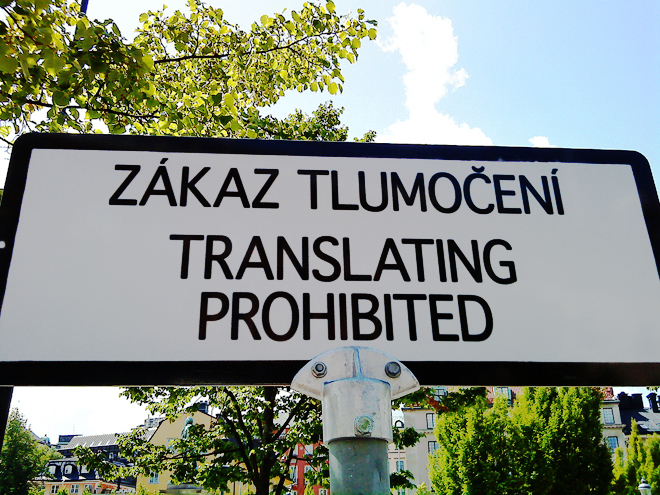
Translators have been concerned about technology since St Jerome stubbed a toe on a newfangled scroll. Actually, though, there are some ways in which it has done us good. Although I still own a barrage of paper dictionaries, I no longer work with a big fat yellow book open on my lap and I enjoy the flexibility that online research offers me. More technical translators have adapted to using new technologies like CAT tools and machine translation software, and as long as demand was increasing we rarely saw the march of progress as a problem.
Now, however, generative AI is threatening translators’ livelihoods – along with the quality of literary translation and even democracy itself. The German, Swiss and Austrian literary translators’ associations have collaborated on a petition, addressed to representatives in the European Union and to readers themselves. The idea is to protect human translation of literary works. It’s available in German and English, so you can read before you sign.
Here are the key demands in the manifesto:
1. The regulation of generative AI:
- No language automation without transparent operating principles and training data.
- AI developers must clearly state which copyright-protected works have been used during training.
2. Protection for intellectual property rights:
- No AI training with our works against our will.
- No AI training using our input without adequate compensation.
3. Transparency and co-determination:
- No AI-generated book content except by mutual agreement between publishers, authors and translators.
- Mandatory labelling of pure AI-content.
4. Targeted support for cultural work:
- Only human creators and works should receive literary funding.
- No promotion of technologies that aim to replace, rather than support, human creativity.
- The cultural technique of literary translation must be preserved and reinforced to ensure that the creation of world literature can be sustained.
5. Empowerment of Readers:
- Human translations must be clearly identified; translators must be named on the book cover.
- Governments and civil society have the obligation to promote critical language skills and technological literacy.
6. Responsible resource use:
- The environmental footprint of AI software cannot be ignored.
7. Fair labour conditions in the digital world:
- All people working on and with AI require ethical labour conditions and adequate pay.
We think it’s worth supporting.